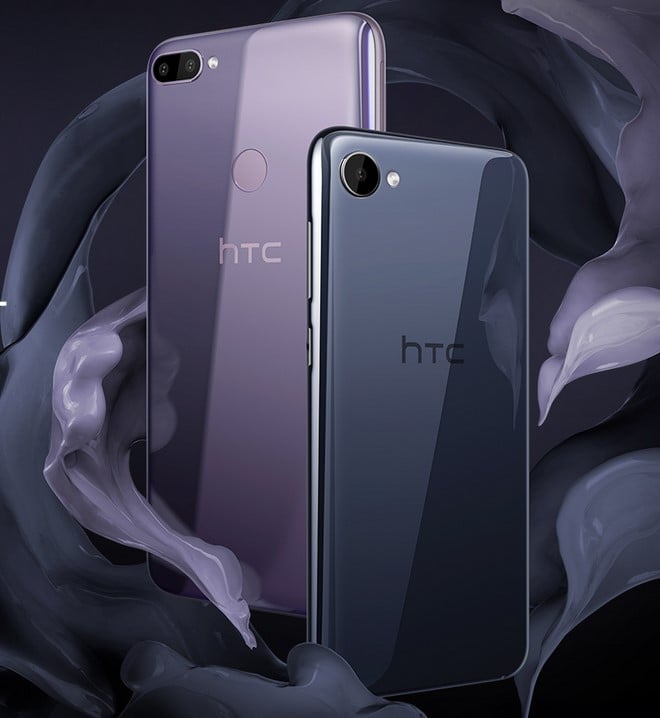HTC U12 Plus release date is just a day away, but in a big blooper before the official release, HTC U12 Plus specs were accidentally released by the company leaving nothing to the imagination of the masses. In the gaffe, which was first spotted by Roland Quandt, HTC revealed everything on its public page. Although the page was quickly pulled down, the damage was already done.
ummm… HTC really shouldn't leave their stuff out in the open like this. https://t.co/jFAb2Ilg2Z
— Roland Quandt (@rquandt) May 22, 2018
Earlier this month, HTC officially announced the launch date for the handset via a tweet captioned “Coming Soon. A phone that is more than the sum of its specs.” The tagline definitely was an effort by HTC to differentiate itself from others in the race. The image did have a blurred view of the components in the background, but nothing specific could be gathered. Now, we have the HTC U12 Plus specs, thanks to the company itself.
Along with the new images, the page revealed all the HTC U12 Plus specs. The handset, which will be available in three colors, will sport dual cameras and have a slim side bezel. The sides, based on the images, look a little heavy, but maybe it will be slimmer in reality.
Further, the leaked page also revealed that the phone would sport a 6-inch 2880×1440 SuperLCD6 display, Snapdragon 845 processor, 128GB storage, 6GB RAM and the 3500 mAh battery, almost close to the Galaxy S9+. Other HTC U12 Plus specs include Boomsound audio and IP68 water/dust resistance. The HTC U12 Plus pricing for China (5,888 yuan or $920) was also revealed.
Now, not much is left to wonder about HTC’s May 23 event. However, HTC might still be able to stir up interest if the reports of a U12 launching alongside the Plus variant are true. Though there are reports that the company might abandon the U12 and release the U12 Plus only, a surprise launch could really make the event interesting.
Over the past few years, the Taiwanese company has had its share of problems with shrinking market share and deteriorating financials. In 2017, when the company launched U11 or U Ultra, it was available unlocked directly from HTC. It seemed like none of the carriers were ready to back HTC devices after years of bad performance. With the HTC U12 Plus release just around the corner, it is hard to gauge if carriers would be ready to sell the phone on their network.
Owing to its financial troubles, HTC had to part ways with long-time CEO Peter Chou in 2015. Even Google’s contract to manufacture Pixel smartphones did not turn things around for the company. HTC, which hasn’t been profitable since 2014, posted a loss of $337 million for the last quarter of 2017.
Last year, there was a glimmer of hope for HTC investors when Google was rumored to acquire HTC. However, in the end, the search engine giant acquired only HTC’s Pixel design units. Google bought a big chunk of HTC’s development team, including hundreds of hardware and software engineers, for a whopping $1.1 billion.
It was a win for HTC, but possibly not enough to turn its fortune. The Google deal helped HTC to post a profit in the first-quarter of 2018. Further, the deal will also help HTC to scale down its operating costs. The company will be hoping that its troubles are now over, and thus, is keeping up a good face and looking for a goldmine opportunity in the saturated smartphone market.
HTC’s efforts to turn around its smartphone unit is quite evident from the fact that the company is working on a blockchain-based phone. It would be the first phone from a popular brand based on the blockchain technology. The HTC Exodus, which would run on Android, would form the base of cryptocurrencies such as Bitcoin and Ethereum. The phone would let the owners keep their data private in the truest sense compared to the cloud, where sensitive information could be accessed and exploited.
After the Cambridge Analytica fiasco involving Facebook, the announcement of such a phone could not have come at a better time as people are rooting for more control over their data. HTC Exodus would be compatible with the decentralized applications – called DApps – and will have a universal wallet for storing the digital currencies. According to the phone maker, every unit would serve as its own blockchain node, which is a part of the network that makes the blockchain system secure.
“The phone is the most prevalent device in this world. It will act as the hub and agent of decentralization,” said Phil Chen, HTC’s new decentralized chief officer, in a statement. “It will enable a completely new class and paradigm of interactions, from games to messaging to wallets.”





